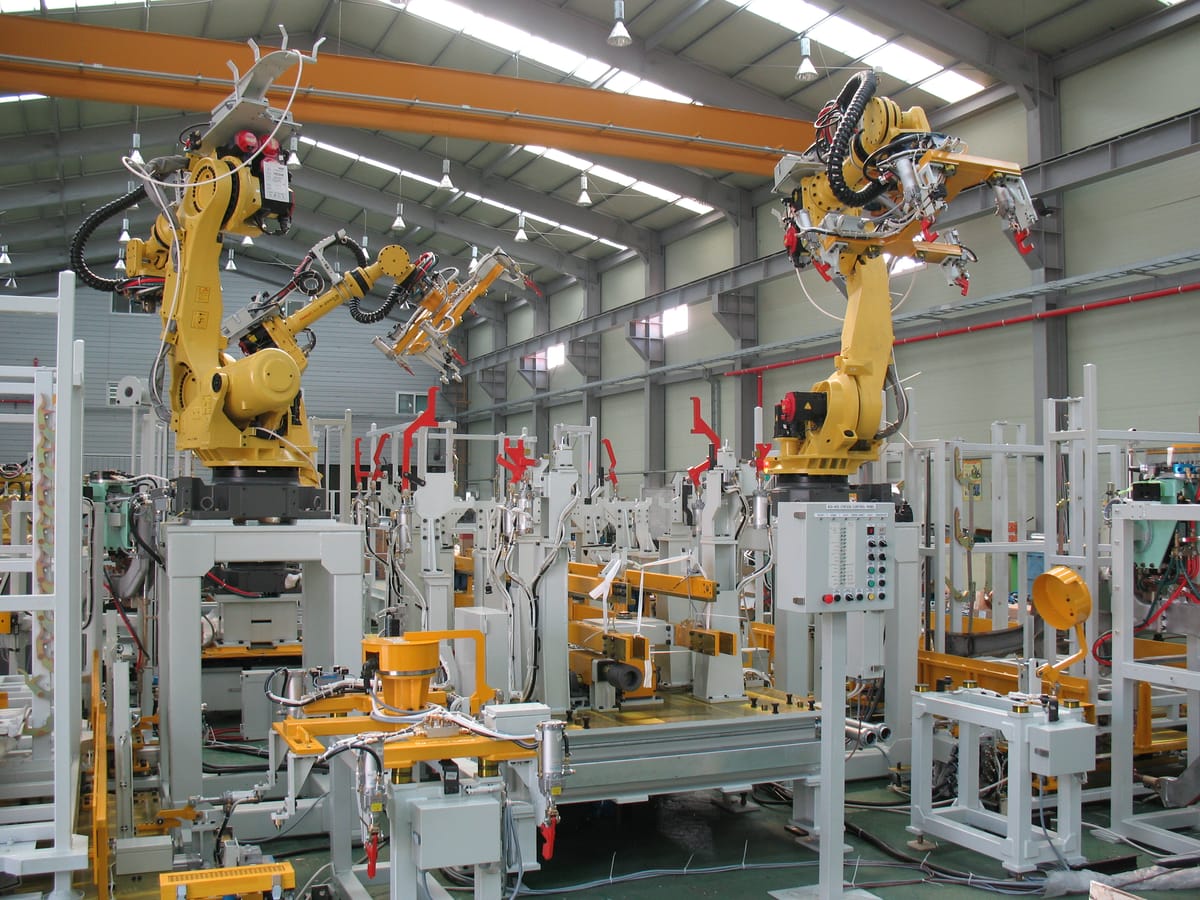We aren't going to solve our manufacturing crisis unless we actually work on it
We have a crisis in manufacturing competitiveness. We need to dedicate some of our most capable people to address it; I have an idea.

Manufacturing Crisis
It is not a stretch to say that American manufacturing is in crisis. Consider some recent articles:
- Saving Boeing is the hardest job and biggest opportunity in business
- Manufacturing is a war now (and the democracies are losing) — Noah Smith’s excellent analysis.
- China’s electric vehicle dominance presents a challenge to the west.
- Ben Thompson writes a much better analysis of the Gelsinger situation and its inevitability than I did (no surprise) and suggests a (challenging) path forward for Intel and the USA.
- China Just Showed Washington How It Plans to Fight the Next Trade War, and manufacturing prowess is at the heart of this.
There is not one problem. There are cross-industry problems, and there are industry-specific problems. We have issues in industrial policy, tax policy, IP policy, and educational investments. The crisis is present in every major industry; it affects a massive swath of jobs. It affects our growth, tax receipts, and ability to fund every social program we want.
It is a substantial foreign policy issue affecting our national security. China is a large country, and will have a large economy and a large manufacturing sector. However, the Chinese manufacturing sector is about the same size now as the US and EU manufacturing sectors together, and the trend line is all in favor of China. As Noah Smith points out, this affects our ability to defend ourselves and our national security.

In short — we are facing an economic crisis due to years of inattentiveness to manufacturing. We have allowed ourselves to become uncompetitive globally, we have underinvested in education, we have underinvested in infrastructure, and we have encouraged corporate behavior, which shifted manufacturing away from our country. It is a failure on almost every front.
President Trump laid out his priorities over the weekend, and manufacturing competitiveness was not featured. Hopefully, this was an oversight. As an economic issue, manufacturing competitiveness seems far more critical than immigration policy or the federal deficit — if we can only fix one, I’d accept continuing deficits and immigration struggles if we had a competitive manufacturing sector in autos, planes, chips, steel, etc.
I will return to the manufacturing point, but first, I want to talk about a lesson I learned about attacking problems.
Priorities and People
While at Microsoft, Paul Maritz taught me a simple and valuable tool for thinking about business priorities and people. Paul had a simple framework — make two columns on the whiteboard. In the first column, list the most significant business problems in stack rank order — most important problem first.
In the second column, list your best people. Where best means “solves problems and gets shit done.” This is not a list of the smartest people, or the people with the biggest organizations. There is some correlation, but every team has some people who are just extraordinarily effective beyond their station.
Now, look at these two columns. If they are not aligned, there is the first problem. If the best people are not working on the most important problems, then you are not serious about solving your problems. Or you have articulated something incorrectly about your problems or your people.
It is a simple framework that can be used weekly. It is not an organizational tool — it does not mean that you slavishly reorg to match up people and business problems; you need organizational structures for different reasons. This tool ensures that you have the right people on the right problems regardless of organization.
Who should be working on our manufacturing crisis?
TL;DR: Why isn’t Elon working on manufacturing competitiveness?
Elon Musk is abrasive. He didn’t really found Tesla. SpaceX has only succeeded thanks to tons of government money. Tesla has only succeeded thanks to tons of government money. Etc etc etc.
Regardless of all this — Elon has been at the helm of US competitiveness and change in two major industries. He may be the greatest industrialist of our time. He may also be crazy. This excellent book review of Reentry suggests both are true — he is crazy by some measures, which has fed his companies’ success. If you stack rank industrialists in our country, Elon would be near the top.
In terms of economic impact, Elon is probably the “best” person that Trump has pulled into his orbit. Elon could effectively apply his industrial engineering skills to the US government and find some savings. And this would be a good thing. But if our #1 problem as a country is manufacturing competitiveness and growth, shouldn’t we put our #1 person on it, especially if that person has demonstrated a remarkable ability to build competitive manufacturing businesses?
And if not Elon, who is working on manufacturing competitiveness? The incoming Secretaries of Commerce and Treasury are finance guys with no manufacturing or industrial background. Vivek Ramaswamy has no manufacturing background. JD Vance has no manufacturing experience.
A manufacturing competitiveness policy will need a lot of pieces — trade policy, IP policy, industrial policy, immigration policy, and education policy. Elon may not be the best at all of these, and he will need help. But he will stir things up and be a change agent, and we need that.